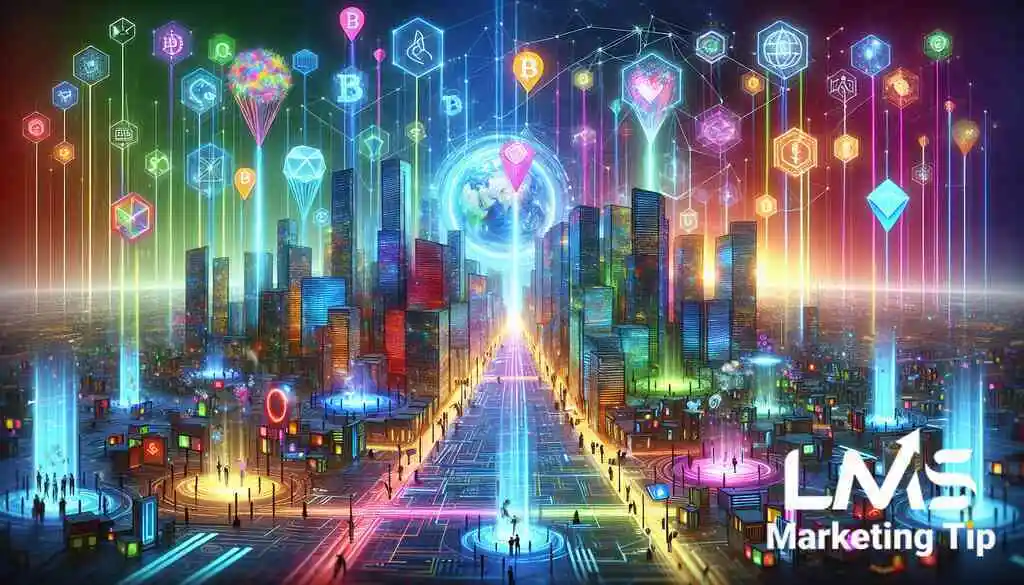
Embarking on the NFT Odyssey
Understanding the NFT Phenomenon
Non-fungible tokens, commonly known as NFTs, revolutionize how digital assets are created and traded. They represent unique digital items authenticated through blockchain technology, lending them an unalterable provenance. This innovation has paved the way for a new digital economy where ownership and rarity are explicitly hashed on the blockchain. From digital art to music and beyond, NFTs have emerged as a novel asset class. They challenge traditional market assumptions about value, scarcity, and collectibility in this increasingly digital age.
The intricacies of NFTs lie not just in their market potential but in their foundational technological components. Unlike cryptocurrencies like Bitcoin or Ethereum, each NFT is distinct, carrying unique metadata that cannot be interchanged. This specificity makes them ideal for representing nuanced assets such as artwork or collectibles. As NFTs continue to gain traction, understanding their underlying mechanisms becomes crucial for marketers aiming to leverage this burgeoning trend. Articulating how ownership is cryptographically insured enhances brand narratives in edifying ways.
The Rise of Digital Collectibility
With the digitization of everyday life, the concept of collection has evolved, and a digital haven has been found through NFTs. The transition from physical to virtual collectibles isn’t merely symbolic; it signifies a broader societal shift towards holistic digital experiences. Digital assets, once ephemeral, now enjoy a permanence guaranteed by blockchain, offering collectors both validation and security. This rise in digital collectibility also mirrors broader economic trends, including the preference for asset diversification in an increasingly volatile global market. As more individuals partake in the digital collectibles space, a parallel economy is thriving on blockchain capabilities. Digital collectibility’s future isn’t confined to seasoned investors; it captivates casual collectors and new entrants keen on exploring fresh opportunities. This dynamism fosters deeper engagement across diverse demographics, introducing nascent audiences to crypto art and potentially democratizing digital asset ownership. For marketers, this shift is an invaluable opportunity to craft resonant strategies that capitalize on emerging consumer interests.
Exploring Blockchain Technology and Its Role
At the heart of NFTs lies blockchain technology, a decentralized ledger system that is fundamentally altering how digital transactions occur. Blockchain enables NFTs to exist as immutable records, certifying authenticity and ownership trails with unparalleled transparency. This technological innovation secures digital assets and sets a new precedent for interacting with data across multiple sectors. By leveraging blockchain technology, marketers can enhance brand trust and redefine engagement paradigms in ways previously unimagined.
Blockchain’s applications transcend NFT frameworks, offering insights into blockchain technology insights applicable across industries. Its potential to streamline processes, foster transparency, and enhance security makes blockchain a critical focal point in modern marketing strategy formulation. Moreover, as brands aim for greater authenticity in an ever-skeptical consumer landscape, blockchain technology provides an incontestable method to substantiate brand claims. This integration heralds a new era in digital marketing where trust is algorithmically instilled, and brand loyalty is reinforced through demonstrable integrity.
The Crypto Confluence in Modern Marketing
Blending Blockchain with Marketing Strategies
Incorporating blockchain technology into marketing strategies represents a pivotal point in the evolution of digital marketing. As businesses seek innovative methods to enhance transparency and security, blockchain’s role in data verification and transaction authenticity becomes increasingly invaluable. This integration fosters consumer trust and amplifies brand engagement through metaverse, leveraging virtual realms to deepen interactions. Blockchain’s transparency ensures accountability, positioning it as a cornerstone in crafting effective marketing strategies that resonate with an audience increasingly concerned about data privacy.
The seamless blending of blockchain with existing marketing frameworks heralds a new era of digital innovation. By automating trust mechanisms through smart contracts and immutable ledgers, brands can streamline operations while enhancing consumer confidence. This technological synergy offers marketers a dynamic landscape to explore and articulate brand narratives with unparalleled authenticity and precision. The adaptability of blockchain technology is a game-changer, propelling businesses into a future where transparency and security are baseline expectations.
Leveraging Non-Fungible Tokens for Brand Awareness
Positioning NFTs as a tool for brand awareness requires an innovative approach that leverages their uniqueness and popularity. NFTs allow brands to create exclusive digital experiences that engage consumers beyond traditional channels. By leveraging these online branding strategies, companies can cultivate unique consumer narratives and elevate their market positioning. The challenge lies in crafting NFT experiences that are not only engaging but also align seamlessly with brand values, creating lasting impressions in the digital space.
By tapping into the NFT market, brands can redefine consumer engagement, offering collectibles that foster loyalty and a sense of belonging. This novel approach to marketing not only enhances brand awareness but also invigorates consumer interest through interactive and exclusive content. The potential of NFTs as marketing tools extends beyond mere collectibles, embodying the shifts in consumer preferences towards personalized and immersive brand interactions.
Decentralized Finance and Its Marketing Implications
The rise of decentralized finance (DeFi) presents marketers with a fresh paradigm to explore. DeFi technologies offer a decentralized alternative to traditional financial systems, enabling marketers to create campaigns that resonate with digitally savvy consumers. As DeFi platforms disrupt conventional finance, they also open avenues for marketers to innovate and deliver value-centric messaging. These innovations in content marketing not only cater to consumer demands for transparency but also highlight a commitment to progressive financial ecosystems.
Decentralized finance reshapes how value is perceived and exchanged, providing marketers with unprecedented opportunities to cater to niche audiences. By embracing DeFi, brands can position themselves at the forefront of financial innovation, appealing to segments that prioritize autonomy and security in financial transactions. This strategic alignment with DeFi principles not only enhances brand credibility but also signals a forward-thinking approach in the evolving digital economy, influencing future marketing strategies indefinitely.
Navigating the NFT Marketplace
Platforms, Players, and Potential in NFT Markets
The NFT marketplace is a vibrant tapestry of platforms and players, each contributing to the exponential growth and diversification of non-fungible tokens. Dominant platforms such as OpenSea, Rarible, and Foundation have paved the way for seamless NFT trading, becoming integral to the digital economy’s landscape. These platforms provide artists and creators with unparalleled access to global audiences, facilitating unique strategies in crypto branding that were previously unimaginable. As more platforms enter this dynamic market, the competition is intensifying, fostering innovation and enhancing user experiences.
Emerging players and niche platforms are capitalizing on specific market needs, offering tailored solutions for diverse digital assets. This expanding ecosystem creates a fertile ground for NFTs, encouraging the democratization of art and creative expression. As these platforms evolve, they present marketers with significant opportunities to leverage digital assets for brand positioning and engagement, driving consumer interaction through unique and immersive experiences. The potential of NFT markets lies in their ability to continually redefine how value is perceived, exchanged, and appreciated in the digital realm.
Smart Contracts: Revolutionizing Brand Engagement
Smart contracts are integral to the NFT ecosystem, offering a revolutionary approach to automating agreements and fostering trust. These self-executing contracts run on blockchain technology and play a pivotal role in enhancing brand engagement through transparency and efficiency. By leveraging smart contracts, brands can streamline processes, thereby reducing costs and increasing operational efficiency. This innovation extends beyond transaction facilitation to influence the broader marketing narrative, positioning brands as pioneers in technological adoption and consumer trust.
The impact of smart contracts in business is profound, offering marketers robust tools to ensure authenticity and compliance while delivering personalized experiences. They empower brands to engage with audiences in more interactive and meaningful ways, fostering loyalty through digitally enhanced trust mechanisms. This technology exemplifies how the integration of blockchain into marketing strategies can redefine consumer interactions, offering brands opportunities to innovate and differentiate in a saturated market.
Digital Ownership and Consumer Empowerment
The advent of NFTs underscores a transformative shift in digital ownership, empowering consumers with unprecedented control over their digital assets. This empowerment is rooted in blockchain technology, which secures ownership rights and ensures the uniqueness of each asset. As NFTs become more mainstream, consumers are increasingly drawn to the promise of owning digital collectibles that carry intrinsic and extrinsic value. This move towards digital ownership opens new avenues for marketers to engage with tech-savvy audiences seeking authenticity and exclusivity.
Through NFTs, brands can redefine consumer relationships by providing a more personalized and engaging experience, capitalizing on the desire for digital transformation in crypto economy. This transformation is not just about digital collectibles but extends to reshaping how consumers perceive value and identity in the digital space. By embracing NFT innovations, brands position themselves as forerunners in advocating consumer empowerment and digital authenticity, creating new avenues for brand narrative and interaction.
Integrating NFTs into Digital Marketing
Innovations in Online Branding through NFTs
The marriage of NFTs and digital branding introduces a revolutionary avenue for creating memorable consumer experiences. Brands are leveraging NFTs to craft distinct and personal branding techniques on the internet, fostering deeper connections with tech-savvy audiences. This innovation transforms the way consumers interact with brands, turning mundane interactions into engaging and personalized experiences. By embedding NFT strategies into online branding, brands can offer tangible digital assets that reflect the brand ethos, enhancing consumer loyalty and retention. With NFTs, companies can now provide exclusive access to digital content, events, and more, aligning with consumer expectations for unique and personalized brand experiences.
NFTs empower marketers to distinguish their brands in a crowded digital marketplace. They allow for the tokenization of brand elements, creating exclusive digital collectibles that enhance brand visibility and awareness. These innovations in web design further support NFT-driven branding, ensuring that digital assets are not only unique but also visually and interactively appealing. As brands explore the vast potential of NFTs, they redefine what it means to engage consumers in the digital age, offering unparalleled opportunities for artistic expression and storytelling in branding.
Partnering with Influencers in the Metaverse
The emergence of the metaverse offers fresh opportunities for strategic partnerships with influencers, enhancing brand narratives through experiential marketing. As influencers carve out niches within virtual realms, brands can collaborate with them to increase their reach and resonance. This dynamic interaction aligns seamlessly with crypto marketing techniques, harnessing the authenticity and influence of digital creators to elevate brand messaging.
Influencer partnerships in the metaverse enable brands to tap into new communities and demographics that may otherwise be challenging to engage. By utilizing NFTs as part of these collaborations, brands can offer exclusive digital experiences, strengthening relationships with their target audience. This strategic integration positions brands as pioneers in navigating the digital landscape, providing consumers with innovative experiences that extend beyond traditional digital marketing tactics.
Virtual Reality Marketing: Beyond the Horizon
Virtual reality (VR) marketing extends the possibilities of NFTs, offering immersive experiences that revolutionize consumer engagement. By integrating VR with NFT offerings, brands can create highly interactive and personalized consumer journeys that captivate and excite. This advanced marketing approach sets the stage for a future where consumers can explore brand worlds without the limitations of physical and geographic boundaries.
Implementing VR in conjunction with NFTs allows for the creation of virtual showcases and events, providing consumers with unique experiences that foster emotional connections. As brands delve into this exciting realm, they are redefining the boundaries of consumer engagement and encouraging a deeper interaction with their brand message. This forward-thinking approach to marketing not only enhances brand perceptions but also positions brands as leaders in innovation, ushering in a new era of digital marketing strategies that challenge the status quo.
The Future Canvas: NFT Strategies and Adoption
Predicting NFT Adoption Trends
NFT adoption is poised for significant growth as industries recognize their potential to revolutionize value transfer and ownership. The diverse applications of non-fungible tokens span from art and music to gaming and virtual real estate, enabling new revenue streams and operational efficiencies. Industries are rapidly incorporating NFTs into their digital marketing strategies, enhancing brand engagement and consumer loyalty. As businesses integrate NFTs, we anticipate widespread acceptance, driven by the increasing demand for digital ownership and authenticity. This shift reflects a broader marketing strategy evolution, redefining how brands interact with consumers in a digitized world.
The appeal of NFTs lies in their uniqueness and the secure, verifiable ownership they provide. As more brands delve into the NFT space, they pave the way for innovative marketing opportunities that parallel the evolution of digital marketing with SEO. By embracing NFT technology, businesses can stay ahead of the curve, offering consumers exclusive digital collectibles that enhance visibility and engagement. The demand for NFTs as marketing tools is set to soar, reflecting a broader trend towards personalized and immersive consumer experiences.
The Role of Tokenization in Digital Transformation
Tokenization represents a significant advancement in digital transformation, offering organizations a powerful tool to enhance security, streamline operations, and deepen consumer engagement. By transforming tangible and intangible assets into digital tokens, businesses can unlock new avenues for revenue generation and consumer interaction. This process not only secures assets but also allows for enhanced transparency and efficiency across various sectors.
As brands incorporate NFTs into their marketing strategies, they leverage the potential of tokenization to reinforce brand narratives and foster consumer trust. This approach aligns with the broader movement towards decentralization, empowering consumers by providing them with greater control over their digital experiences. By adopting tokenization, businesses can stay competitive by adapting to the evolving digital landscape and meeting consumer expectations for authenticity and exclusivity.
Evolving Consumer Engagement with NFT Integration
The integration of NFTs into digital marketing strategies is revolutionizing consumer engagement by offering unique and personalized brand experiences. NFTs enable brands to connect with their audience on a deeper level, fostering loyalty through interactive and exclusive content. By leveraging NFTs, companies can create engaging narratives that resonate with consumers, enhancing brand visibility and market positioning.
This innovative approach to consumer engagement mirrors the transformation experienced in digital marketing with the advent of web design and SEO on Long Island. By integrating NFTs, brands can offer consumers a more immersive and interactive experience, strengthening relationships and encouraging brand advocacy. As NFTs become a staple in digital marketing, they provide an opportunity for brands to differentiate themselves in a competitive market, driving consumer interaction and brand affinity.
Conclusion: A New Epoch in Digital Marketing
Embracing Marketing Innovations in the NFT Era
Entering the NFT era heralds a transformative shift in how brands approach digital marketing. The infusion of blockchain technology and non-fungible tokens into marketing strategies has opened up a realm of unimaginable possibilities. Brands can now create unique and personalized consumer experiences that transcend traditional marketing boundaries. By embracing these innovations, companies not only foster brand loyalty but also ensure their relevance in an ever-changing digital landscape. This strategic adaptation illustrates a forward-thinking approach that capitalizes on NFT branding explored, emphasizing the necessity for brands to remain agile and visionary.
NFTs provide marketers with remarkable tools to distinguish their brands and capture the attention of tech-savvy audiences. The distinctiveness of NFTs lies in their ability to offer verifiable ownership, a feature that resonates with consumers’ increasing demand for authenticity and exclusivity. As businesses incorporate NFTs into their marketing strategies, they redefine consumer engagement by offering exclusive content and enhancing brand visibility. The era of NFT marketing embodies a profound shift towards leveraging digital assets for enhanced consumer interaction, ensuring that brands remain at the cutting edge of marketing innovation.
Championing Digital Transformation for Measurable Results
Digital transformation in marketing is no longer a future concept but a present-day necessity for businesses seeking measurable results. By integrating NFTs and other digital asset technologies, brands can sculpt marketing strategies that deliver enhanced consumer engagement and accountability. These innovations not only streamline operations but also provide invaluable insights into consumer preferences and behavior, leading to more informed decision-making processes. In doing so, brands position themselves as pioneers in the digital economy, appealing to consumers who prioritize forward-thinking and innovation.
Aligning digital transformation efforts with cutting-edge technologies like NFTs allows brands to achieve measurable results and maintain a competitive edge. The strategic integration of digital ownership and tokenization offers unprecedented opportunities to enhance brand loyalty and consumer trust. By championing these technological advancements, companies are empowered to deliver campaigns that resonate deeply with their target audience, ensuring long-term success in a continually evolving marketplace. Brands that embrace this digital evolution are poised to set new standards in marketing excellence, driving growth and achieving significant returns on their marketing investments.
Frequently Asked Questions
Question: How can blockchain technology enhance brand engagement through NFT marketing?
Answer: Blockchain technology is pivotal in NFT marketing by ensuring transparency, security, and authenticity in digital transactions. By leveraging blockchain, brands can build trust with their audience, offering verifiable ownership of digital assets. This transparency enhances brand engagement as consumers feel confident in the integrity of the transactions. Additionally, blockchain’s immutable nature allows for the creation of exclusive digital experiences, like limited edition NFTs, capturing consumer interest and fostering loyalty. Marketing Tip can help you integrate blockchain into your digital marketing strategy, providing innovative solutions for enhancing brand engagement through NFTs.
Question: What role does digital collectibility play in the rise of NFT marketing?
Answer: Digital collectibility is at the heart of the NFT marketing phenomena. As digital assets become more integral to consumer identity and expression, the demand for unique, collectible digital items increases. NFTs offer an unparalleled opportunity for brands to create rare and exclusive experiences that resonate with consumers. By crafting NFTs that embody their brand values, companies can engage with their audience more deeply. Marketing Tip can guide you in developing strategies that capitalize on digital collectibility, ensuring your brand stands out in a crowded marketplace.
Question: How can businesses integrate NFT marketing strategies to boost brand awareness effectively?
Answer: Integrating NFT marketing strategies involves creating unique digital assets that align with brand identity and values. These digital tokens can act as collectibles, exclusive content, or access passes to events, all of which engage consumers in novel ways. Lead Marketing Strategies can assist. To effectively boost brand awareness, businesses must ensure that their NFTs are not just trendy but also provide tangible value to their audience. Marketing Tip assists businesses in conceptualizing and executing NFT strategies that maximize their exposure and resonate with their target audience. Our expertise in digital marketing and branding ensures your NFT initiatives enhance brand visibility and engagement.
Question: Why should companies consider the metaverse and virtual reality marketing as part of their NFT marketing strategy?
Answer: The metaverse and virtual reality marketing expand the potential of NFT marketing by creating immersive, interactive brand experiences. In these digital realms, brands can engage with consumers on a deeper level, offering unique experiences that blur the lines between reality and the virtual space. By incorporating these elements, companies can differentiate their offerings and create lasting impressions. Marketing Tip provides insights and strategies to seamlessly integrate metaverse and VR into your NFT marketing initiatives, ensuring your brand remains at the forefront of digital marketing innovations.
Question: How does the article Deciphering the Impact of NFT Marketing on Today’s Market highlight the importance of adopting NFT strategies?
Answer: The article Deciphering the Impact of NFT Marketing on Today’s Market emphasizes the transformative impact of NFTs on consumer engagement and brand strategies. It illustrates how NFTs facilitate new revenue streams, enhance operational efficiencies, and offer unparalleled opportunities for brand differentiation. By adopting NFT strategies, businesses can meet evolving consumer demands for authenticity and exclusivity. Marketing Innovations. Marketing Tip helps you navigate the complexities of NFT adoption, providing tailor-made strategies that align with your business goals and resonate with your audience. NFT Marketing Strategies











